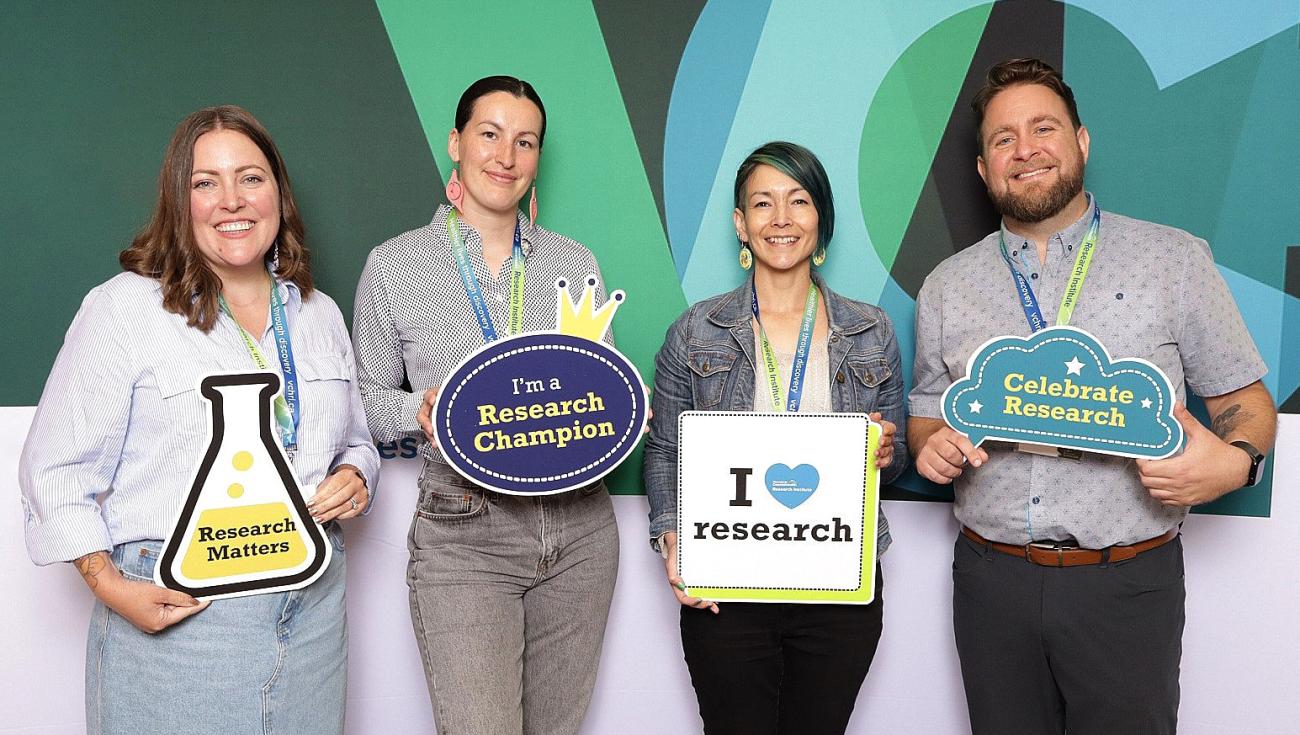
Researchers at the Indigenous Health Research Unit at VCHRI share how their work contributes to advancing health equity, cultural safety and self-determination for Indigenous communities.
Research is crucial to improving health outcomes and unlocking the potential of new medication, treatments and medical devices. However, it has historically excluded certain groups, including Indigenous Peoples, leading to biased results that do not accurately reflect the experiences of all Canadians. Expanding research to be more inclusive ensures findings are more representative of the broader population, leading to more impactful outcomes.
The Indigenous Health Research Unit (IHRU) at the Vancouver Coastal Health Research Institute (VCHRI) was launched in August 2024 to lead the advancement of Indigenous health research and the improvement of health care for Indigenous communities. Led by Dr. Gabrielle Legault, IHRU strives to dismantle colonial barriers within VCHRI and promote culturally safe approaches to Indigenous health and well-being. We spoke with the researchers at IHRU to learn more about their roles on the team and how their work is creating safer, more responsive health care for all.
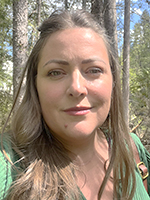
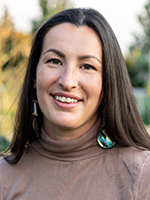
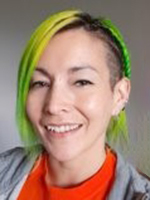
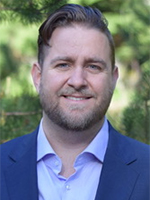
Q: How do IHRU’s research initiatives contribute to meaningful, community-driven change and support the health and well-being of Indigenous Peoples across British Columbia?
Gabrielle: At IHRU, our goal is not just to conduct research about Indigenous Peoples, but to support research that is by and for Indigenous Peoples, which leads to meaningful, sustained change in health and well-being.
One of the most important ways we support community-driven change is by building strong, reciprocal relationships. We want to shift the model from extractive research to one rooted in trust, accountability and community-defined benefits. We are also working to create space for Indigenous leadership within health research. This includes advocating for Indigenous-led data governance processes; supporting Indigenous researchers and patient partners; and helping VCHRI build the capacity to work in more relational and culturally safe ways.
Q: How is IHRU working to integrate Indigenous Knowledge Systems into broader health care policy to improve health care access, experiences and outcomes for Indigenous Peoples?
Andreas: Our work includes amplifying Indigenous Peoples’ stories and voices with the aim of shifting how health care systems define and measure the quality of care. This includes moving beyond Eurocentric standards and towards approaches that reflect Indigenous values, priorities and relational accountability. Importantly, IHRU’s work is not only research driven, but also action oriented — we aim to translate our findings into meaningful policy changes that directly improve access, cultural safety and health outcomes for Indigenous Peoples across Vancouver Coastal Health and beyond.
We do this by recognizing Indigenous Ways of Knowing and Being and embedding them into health research, thus challenging the status quo of Western-dominated approaches to health research. For example, we have been developing the Indigenous Health Research Foundations program to support non-Indigenous health researchers’ learning journeys. We also work closely with health authority leadership to integrate Indigenous perspectives into health research and quality improvement initiatives. Most importantly, we work closely with First Nations and Indigenous communities to address and advance their health research priorities within the health care system.
Q: In what ways does IHRU support the VCHRI community by providing research-specific training, funding and mentorship opportunities, especially for those focused on Indigenous health?
Sandra: We are developing various educational resources for the community, one of which is a language guide to assist researchers when writing about or with Indigenous Peoples. Another resource, the Indigenous Health Research Foundations, is a series of online workshops for health researchers looking to continue their cultural safety learnings. These workshops will offer some clear and applicable first steps for the VCHRI community to better understand our shared history, as well as our present and our potential paths forward together.
We also provide ongoing support upon request to teams looking to build research that meaningfully partners with Indigenous Peoples. This work involves close collaboration with the VCHRI awards team to ensure funding opportunities are inclusive of Indigenous communities and accessible to Indigenous health researchers.
Q: Can you explain the principles of OCAP® and how they are integrated into the ethics review process to ensure respect and accountability for Indigenous communities?
Chenoa: OCAP®, which stands for ownership, control, access and possession, reflects a set of standards that affirm the rights of First Nations to govern how information about our communities is collected, used and shared. These principles are foundational to ethical engagement in Indigenous health research and uphold our sovereignty as First Nations. Integrating OCAP® into the ethics review process whenever possible ensures that research protocols are developed with community guidance; that data is stored and used in accordance with community preferences; and that the dissemination and application of findings is clearly agreed upon.
Q: What are some ways that investigators can ensure that their research practices honour cultural safety and Indigenous methodologies?
Andreas: There are several foundational ways investigators can ensure that their research practices uphold cultural safety and honour Indigenous methodologies. A first step would be for investigators to confront their own potential biases and engage in ongoing learning around colonial histories, intergenerational trauma and the systemic barriers Indigenous Peoples face in health care. It is important that non-Indigenous people understand the truth in order to move towards reconciliation.
When designing research, it is important to remember that Indigenous communities and Knowledge Holders must be provided opportunities to lead research from the earliest stages rather than being consulted later. This means supporting community-led research agendas, respecting community protocols and ensuring Indigenous governance over research design and data. Additionally, the research should meaningfully benefit the communities involved, whether through capacity building, actionable knowledge translation or supporting local priorities beyond the research project itself.
Q: Could you share some ongoing research projects at IHRU that are amplifying the voices of Indigenous patients and communities?
Chenoa: Our Nuxalk-BCGH Traditional Foods Project is guided by community advisors and project team members from the Nuxalk Nation to explore how hospitals are making reparations for colonial harms through the integration of Indigenous food offerings in clinical settings. We are also leading a project that focuses on Indigenous health outcomes associated with emergency room visits. For this research, we are helping to develop an Indigenous Advisory Committee that will provide guidance on analytic and translational decisions to consider when working with Indigenous data.
These initiatives are not only amplifying Indigenous experiences, but they are also challenging systems to be more accountable, responsive and culturally safe. Through this work, we are supporting changes in health policy and practice that are grounded in Indigenous rights, knowledge and leadership.
Q: In what ways does IHRU make sure that research findings are accessible and beneficial to Indigenous communities?
Sandra: Each member of IHRU believes in being a part of meaningful change, which begins by building a trusting and reciprocal relationship with the community. As there is no singular pan-Indigenous perspective, we take the time to learn about the community’s unique values and views. This includes asking what they want and partnering with them throughout the process to ensure that our findings can provide tangible benefits. We also strive to maintain these ongoing relationships beyond the completion of our projects.
Historically, research has been conducted using Western methodologies and was based on colonial values. By incorporating Indigenous values into health research alongside Western research, we are working to change how health research is done. In turn, this will help to change how health care is practiced.
Q: How do you see IHRU’s role evolving in response to the needs and priorities of Indigenous communities?
Gabrielle: As Indigenous communities continue to define and assert their research agendas, IHRU will evolve as a supportive, facilitative and collaborative space. We envision expanding community-engaged training opportunities and deepening partnerships with both urban and rural Indigenous communities and individuals across the region. We also see IHRU as a bridge between VCH and Indigenous-led initiatives, supporting the translation of priorities into policy-relevant research and ensuring that Indigenous voices drive decision-making.
Over time, I hope that the aspiring ally researchers who we are mentoring will become mentors themselves, teaching their colleagues and students how to engage in Indigenous health research in a meaningful way. By centring Indigenous knowledge systems, committing to long-term relationships and building research processes that are responsive to community priorities, IHRU is working toward a future where Indigenous Peoples can see themselves reflected not only in research, but in the systems meant to support their health and wellness.


